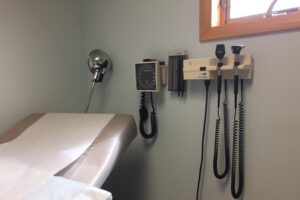A secret is something we are unwilling to share with anyone. It implies lack of full disclosure. It is linked to shame. “We are as sick as our secrets”. This is a commonly-heard saying in the rooms of Recovery. One of the goals of Recovery is to complete a thorough moral inventory to the best of our ability and share it with at least ONE other human being (Fourth and Fifth Steps of the Twelve Steps). If we share our secrets with someone (for example, a good sponsor or a priest or even a stranger), it is no longer a secret.
This does not mean that a secret shared with another human being should be made public. This is where privacy comes in. Privacy means that not everything said in confidence between two people (the elimination of a secret) is fit for public consumption. Privacy is the right to protect oneself from public disclosure. It provides us safety. It is the control over the dissemination of one’s truth beyond disclosure to one other trusted human being. Privacy represents boundaries. Privacy may be breached when necessary, if it feels right and if all parties can benefit from the disclosure. Otherwise, disclosure should be limited to getting rid of secrets (i.e. disclosure to one other trusted human being).
The distinction between secrets and privacy is an important principle when newly recovering addicts and alcoholics return to the workplace environment after an absence. Not everyone at work needs to know about the personal details of the recovering addict/alcoholic as he/she resumes his/her workplace duties.
The following general guidelines may apply to any return-to-work situation, but I will focus on the recovering health professional returning to a safety-sensitive employment.
Let’s take the example of the recently rehabilitated nurse or doctor who may require a workplace monitor as a precondition of a return-to-work plan. This monitor will of course need to know the diagnosis of the recovering health professional in order to properly gauge workplace performance or any telltale problems (including relapse) should they arise. This does not mean that everyone working at the nursing station or in the doctor’s office needs to know the particulars of the recovering health professional’s medical condition. In other words, privacy can and should be maintained.
Similarly, a home monitor (such as a spouse or other family member) may be required by the physician’s or nurse’s monitoring program tasked with the responsibility of ensuring a safe return to work. Should any concerns arise at home, the spouse or other family member is asked to report these concerns to the professional monitoring body, both for the sake of the health professional and the safety of the public.
It goes without saying that this family member should be reliable, honest, objective and carefully chosen for this important task; it should be someone who has the interests of the monitored person AND the interests of public safety at heart.
Everyone involved in return-to-work monitoring should have a clear understanding of the rules of disclosure between monitoring bodies and professional regulatory bodies because under certain circumstances, information obtained by the monitoring programs may have to be divulged to the professional Colleges to ensure the safety of the public. Therefore, prior consent should be carefully obtained to cover the contingencies of disclosure. Unauthorized breaches of privacy should be avoided at all costs. This is very important because there have been regrettable instances of unauthorized breaches of confidentiality: private information, even erroneous information, unnecessarily and harmfully divulged to regulatory bodies! This can be extremely destructive and prejudicial to the reputation of recovering health professionals. More on this in subsequent blogs.




Leave a Reply